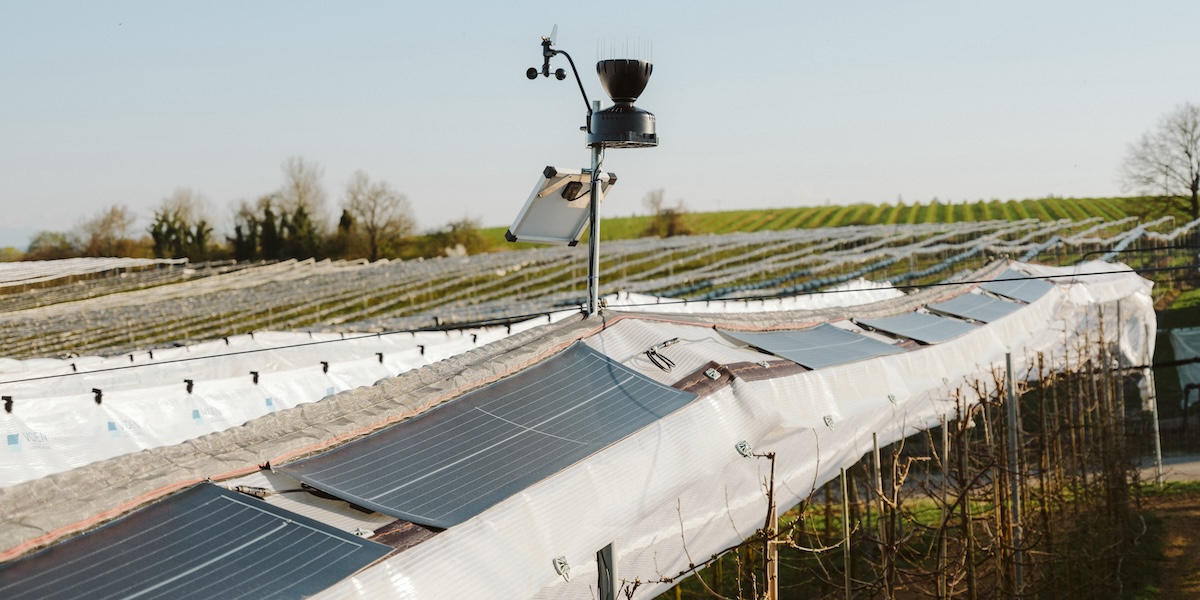From pv magazine Germany
Fraunhofer Institute for Solar Energy Systems ISE and weather protection specialist VOEN Vöhringer are testing an unconventional agrivoltaic system on a cherry orchard in Upper Swabia, Germany. The system aims to reduce the cost of agrivoltaics.
Typical agrivoltaic setups for fruit cultivation require steel substructures, which must either be built on open, unused land or installed between existing trees or shrubs – often with significant effort.
Fraunhofer ISE and VOEN Vöhringer instead use the existing substructures for protective nets and foils. Because these can only support light loads, the project team developed a lightweight module concept weighing less than 5 kg per square meter, with a potential output of 420 kW per hectare.
Felix Basler, project manager at Fraunhofer ISE, said two factors typically drive up agrivoltaic system costs compared to ground-mounted PV: the construction of mounting structures and the installation of the modules. “In addition to developing inexpensive lightweight modules, we have designed and tested various solutions for their uncomplicated installation on traditional weather protection systems in specialty crop cultivation,” added Basler.
Leo Vöhringer, project manager at VOEN, said the setup is “incredibly simple” as a new construction or retrofit solution. “It was important to align an agrivoltaic concept with fruit-growing practices, and not the other way around,” he explained, adding that the weather protection can be stowed beneath the modules when not needed.
The test facility stands in Berg near Ravensburg, on the grounds of Obstbau Vöhringer, a sister company of VOEN Vöhringer. It spans two rows of cherry trees, each about 40 meters long. The team is monitoring the system’s electricity output and harvest yield, using custom software to simulate the optimal module size to avoid shading-related crop losses. They expect to complete the evaluation by year-end.
The research project is funded by the German state of Baden-Württemberg. In southern Baden-Württemberg alone, fruit trees under netting or film cover more than 5,000 hectares.
This content is protected by copyright and may not be reused. If you want to cooperate with us and would like to reuse some of our content, please contact: editors@pv-magazine.com.








By submitting this form you agree to pv magazine using your data for the purposes of publishing your comment.
Your personal data will only be disclosed or otherwise transmitted to third parties for the purposes of spam filtering or if this is necessary for technical maintenance of the website. Any other transfer to third parties will not take place unless this is justified on the basis of applicable data protection regulations or if pv magazine is legally obliged to do so.
You may revoke this consent at any time with effect for the future, in which case your personal data will be deleted immediately. Otherwise, your data will be deleted if pv magazine has processed your request or the purpose of data storage is fulfilled.
Further information on data privacy can be found in our Data Protection Policy.